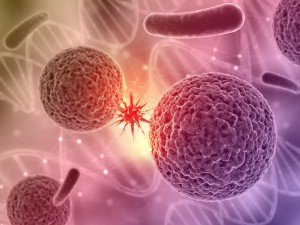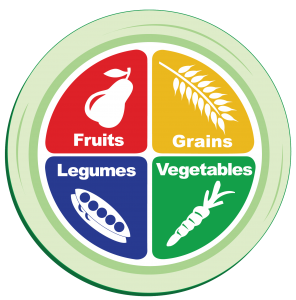
Cancer
Prostate Cancer
A study published this month found that a high intake of dairy products such as milk increased the risk of developing prostate cancer. Previous research has shown the same. High intakes of dairy products including whole and low-fat milk and cheese increase the risk for prostate cancer, according to a meta-analysis that looked at 32 studies. Dairy products also increase the risk of death from prostate cancer. Men who consumed three or more servings of dairy products a day had a 141% higher risk for death due to prostate cancer compared to those who consumed less than one serving, in a study published in the International Journal of Cancer.
Avoiding dairy products and eating a more plant-based diet may help protect the prostate. A study published in the American Journal of Clinical Nutrition found that men who followed a vegan diet had a 35% lower prostate cancer risk than those following a nonvegetarian, lacto-ovo-vegetarian, pesco-vegetarian, or semi-vegetarian diet.
New research in The Journal of Urology found that men who consume the most plant-based foods decrease their risk of dying from prostate cancer by 19%.
Breast Cancer
Women who consume more inflammatory foods are 12% more likely to get breast cancer, according to new research presented at the June 2021 meeting of the American Society for Nutrition. The data come from more than 350,000 women in the European Investigation into Cancer and Nutrition (EPIC) study. Which foods are inflammatory? The worst offenders are red and processed meat; butter, margarine, and oily foods; and foods with high amounts of added sugars, like sweets and sodas. In the anti-inflammatory category: fruits, vegetables, beans, lentils, tea, and coffee. Retrieved from https://www.eurekalert.org/pub_releases/2021-06/asfn-dtp052821.php?emci=cfa9e63f-ead8-eb11-a7ad-501ac57b8fa7&emdi=59b3c42c-21d9-eb11-a7ad-501ac57b8fa7&ceid=7893983
Tofu lovers, rejoice! A recent study of multiple other studies (called a meta-analysis) found that breast cancer survivors who consume more isoflavones—mostly found in soy foods—are less likely to have their cancer come back. They’re also less likely to die of any cause. The effect seems to be driven by postmenopausal women. Retrieved from https://pubmed.ncbi.nlm.nih.gov/32632445/
A meta-analysis of 16 studies on green tea found that those who drank the most green tea had a 14% lower risk of getting breast cancer. Moreover, the more years people drank green tea, the lower their risk. It’s a comforting, breast-friendly choice if you need a boost! However, do pay attention to when you drink it, as it contains caffeine, which could disrupt sleep if consumed later in the day. Green tea also decreases iron absorption, so avoid drinking it within 1 hour of a meal.
Retrieved from https://pubmed.ncbi.nlm.nih.gov/31959020/
Colorectal Cancer
The World Health Organization has determined that processed meat is a major contributor to colorectal cancer, classifying it as “carcinogenic to humans.” Just one hot dog or a few strips of bacon consumed daily increases cancer risk by 18 percent. The World Cancer Research Fund (WCRF) and the American Institute for Cancer Research (AIRC) have also found that “the evidence on processed meat and cancer is clear-cut.” Colorectal cancer rates are on the rise in young people. Adults born around 1990 have twice the risk of colon cancer and four times the risk of rectal cancer compared with adults born around 1950, according to a study published by the National Cancer Institute. American Cancer Society guidelines now recommend that screening begin at age 45. The guidelines attribute rising rates to diets high in processed meat and low in fruits, vegetables, and other dietary fiber as risk factors. To reduce your risk, focus on fruits, vegetables, grains, and legumes, which are high in fiber and other protective nutrients. Eating just three servings of whole grains per day can reduce colorectal cancer risk by 17 percent.
Dairy foods are complex mixtures which include nutrients and non-nutrient substances that could potentially influence cancer etiology, including breast cancer. – Current Developments In Clinical Nutrition. 2017 Mar; 1(3) Retrieved from https://www.ncbi.nlm.nih.gov/pmc/articles/PMC5998914/
High serum cholesterol levels, high CYP27A1 enzyme levels and more of the estrogen-like 27HC makes breast tumors more aggressive–something “no one had thought of before.” TColin-Campel Center for Nutritional Studies 2014 January 9th. 2020 March. Retrieved from https://nutritionstudies.org/breast-cancer-cholesterol-reductionism/
